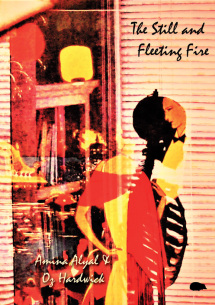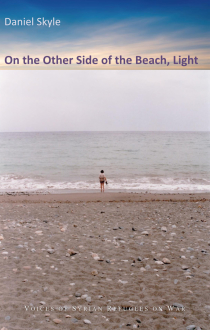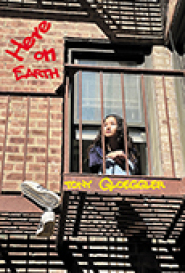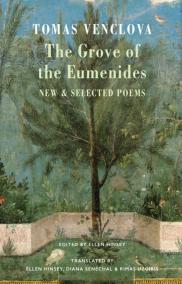
Amina Alyal and Oz Hardwick,
The Still and Fleeting Fire,
Hedgehog Press, 2022.
ISBN 978-1-913499-48-8. pp 27. £6.
2021 marked the 700th anniversary of the death of Dante Alighieri, whose Divine Comedy has endured as one of the great art works of the Renaissance and arguably all time. Amina Alyal and Oz Hardwick, colleagues at Leeds Trinity University and established collaborators, won a coveted contract with ‘The Cult of the Spiny Hog’ (aka the quirky Hedgehog Press, which largely operates via a poetry subscription service) to produce an interwoven collaboration of prose poems. Both poets are represented in a much larger anthology, Divining Dante (edited by Paul Munden and Nessa O’Mahony, Recent Work Press, 2021), and it is apparent that these new poems form part of what Alyal and Hardwick describe as a ‘three-way conversation with Dante, who brought his experience of Purgatory to bear as he led us through this era in which we, too, find ourselves trudging an upward spiral with only hope to sustain us.’ (Afterword)
Epigraphs from Dante and Epidemiologist Professor Chris Witty set us on the road, which may – or may not – lead to a life that is the same as it was before (despite the pains, losses, changes and confusion of pandemic life). But the choice of the next step is ‘ours to choose’. This post-modern take on the relationship between poet and reader shapes the poems in the slim pamphlet, which conceals the identity of the individual authorship of poems. This creates an intimate, almost claustrophobic dialogue, as well as a sense of indeterminancy which vividly captures the world we are living in – and the imagined world we enter through these poems. The horrors and uncertainties of life extend to issues of personhood, with a repeated ambiguity in terms of agency: ‘we/they say … we/they lie…I/we can do it…’. The poets wander through a hellish landscape, peopled with animals, tricksters, with ‘blank fingerposts’, ‘endless cloud’, where eyes are sewn shut, and questions left unanswered.
There are guides through this hellish landscape, but they have ‘nothing to offer but their experience of having been lost a million times before …’ and need to consul ‘concordances and Google maps, check [s] endnotes and suggest[ed] further reading’ before whimsically offering refreshment for the journey of ‘mint cake and spring water.’ In ‘Last Night in Purgatory’ the guide pops up ‘in white robes and a laurel crown’, evocative of Domenico di Michelino’s 1465 portrait of the poet in Florence cathedral. But the guide is not Virgil, or Dante, more an anonymous homme moyen sensuel, as lost as everyone else. Rely on experts at your peril, the poets suggest: ‘my erstwhile guide, my foul-weather friend, angles his phone in hope of a signal, lost without Google or GPS, then fades into the background.’ Deeply political; always humane; darkly witty; tragically beautiful, these poems will repay re-reading. Forget Rough Guides; slip this volume into your pocket in lieu of a map for all your journeys.
Hannah Stone
To order this book click here
Hannah Stone is the author of Lodestone (Stairwell Books, 2016), Missing Miles (Indigo Dream Publishing, 2017), Swn y Morloi (Maytree Press, 2019) and several collaborations, including Fit to Bust with Pamela Scobie (Runcible Spoon, 2020). She convenes the poets/composers forum for Leeds Lieder, curates Nowt but Verse for Leeds Library, is poet-theologian in Virtual Residence for Leeds Church Institute and editor of the literary journal Dream Catcher. Contact her on hannahstone14@hotmail.com for readings, workshops or book purchases.
Daniel Skyle, On the other side of the beach, light, Stairwell Books.
ISBN: 978-1-913432-38-6. £9.
In his preface, Skyle outlines the parameters he adopted before beginning to work on this collection. First of all the poems are based on numerous interviews Skyle conducted with Syrian refugees. This ensures authenticity as he draws extensively on the testaments of the refugees themselves. Indeed, some of the poems are so unembellished they exist almost as found poems.
This leads into Skyle’s other approach: his determination to stick to a plain style that would not compromise the integrity of the content. This is a difficult balancing act as poetry, no matter how spare it is, inevitably draws attention to its own artistry, sometimes quite simply by the way it is aligned on the page. Skyle states: “I have consciously tried to keep the poems simple. I wanted to let the speaker’s voice come through rather than my own. I also wanted to keep them simple as I don’t want to write poems that make war, torture and bombed hospitals seem beautiful.” So Skyle makes it clear from the outset that he does not want artistry to get in the way of the authenticity of his poems.
The risk with this approach of course is that the poems may lack dynamism. Certainly there is nothing here that compares to the rhetorical power of Paul Celan’s Todesfuge which focuses on a comparable horrifying experience, namely being incarcerated in concentration camp. Celan’s poem calls upon an intense expressionism, conjuring the figure of Death which “comes as a master from Germany” to personify the Third Reich. Skyle denies himself such power but in sticking to the limits of his brief he produces poems that, nevertheless, possess a subtle power while being understated.
He achieves this with a body of work that has the feel of a documentary. A frequent device is for the refugees to speak for themselves, directly to camera as it were, with Skyle operating as an unseen and silent interviewer. This is evident in Annika and I laughed today, which reads like a direct transcript. It makes for poignant reading, recounting a pleasant but inconsequential social event that contrasts so starkly with the circumstances the speaker has left behind in Syria. Poems like these encapsulate a major feature of the collection which is to present refugees in their individual humanity as opposed to possessing merely a group identity.
At other times the unadorned simplicity of Skyle’s poems transcend transcription, achieving a resonance that perhaps might not have been so effective had they been more embroidered. Paperless, for instance, which deals with the bureaucratic obstacles refugees have to face, ends with an irony that is all the more powerful for being so direct:
I didn’t know
the whole world
can be built
on paper.
For the most part, lyricism is studiously avoided. The few exceptions stand out all the more because of that. One example is A Song of Trees, but even then the vocabulary employed would sit comfortably in an everyday conversational exchange, though in this instance Skyle does allow himself a degree of poeticism:
I’ve heard about forests,
I’ve heard about trees,
I know seeds grow strong
to reach for the sun.
However, the lyricism here is achieved primarily through subtle use of rhythm rather than marked poetic effects.
Another technique used occasionally to raise the impact of the poems is dialogue. This is most powerfully employed to chilling effect in Where is your passport. Again the documentary quality of the collection is evident:
Why don’t you have a passport?
“I couldn’t get one”
What do you mean you couldn’t get one?
You just order one, yes?
“…I didn’t dare insist
I want to have all my fingers
I don’t have a passport”
Conversely, a few of the poems veer towards being flat and might have been better rendered as prose poems, or prose interludes within the text. For example, in One Year Later lineation does not enhance the poem sufficiently to warrant its use. More often though Skyle’s instinct with lineation and enjambment is effective and striking:
I swim
high above the fallen wrecks
my life is on my back
The overarching achievement of the collection is that Skyle has succeeded, albeit on a small scale, in giving through his interviews and poems a voice to people who through their circumstances have been rendered voiceless, and for this he deserves to be applauded.
David Mark Williams
To order this book click here
David Mark Williams writes poetry and short fiction. He has two collections of poetry published: The Odd Sock Exchange (Cinnamon, 2015) and Papaya Fantasia (Hedgehog, 2018). For more information go to www.davidmarkwilliams.co.uk



